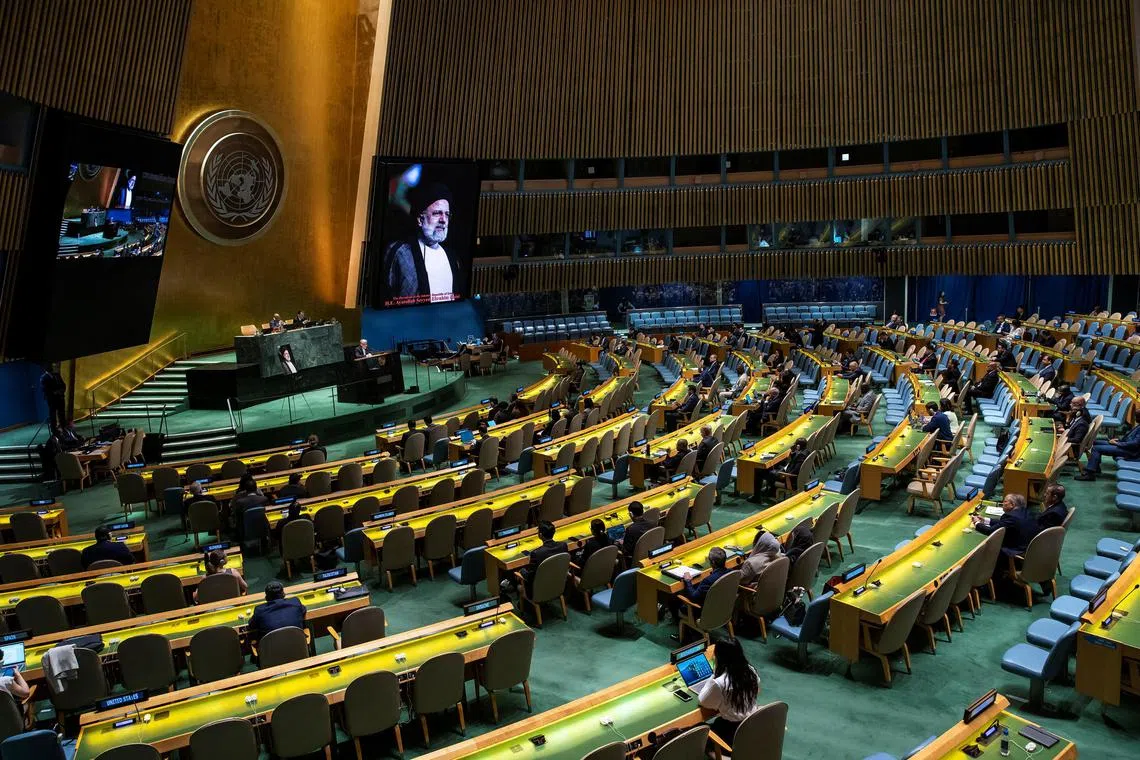UN tribute to Iran’s Raisi underscores divide in world body
Sign up now: Get ST's newsletters delivered to your inbox

Iran's Ambassador to the UN Amir Saeid Iravani addresses the General Assembly during a tribute to Iran's President Ebrahim Raisi, on May 30.
PHOTO: REUTERS
NEW YORK – A United Nations tribute to Iran’s late President Ebrahim Raisi, killed in a helicopter crash in May
Mr Nate Evans, a spokesman for the US mission, said in a statement that “some of the worst human rights abuses on record took place during his tenure”.
In a separate statement, the Israeli mission said “it is a poor reflection on an organisation to eulogise a dictator responsible for the murder of thousands of his own citizens”.
By contrast, Burundi’s Ambassador to the UN Zephyrin Maniratanga, speaking on behalf of 54 African countries, described Mr Raisi as a “visionary leader” and praised him for fostering international cooperation.
The representative of Uganda, speaking on behalf of so-called non-aligned nations, said Mr Raisi and Foreign Minister Hossein Amir-Abdollahian, who also died in the crash, played a crucial role in increasing cooperation among developing countries.
Representatives of Latin American and Asian countries also expressed their condolences before the nearly 200-member General Assembly, as European nations remained silent.
Speaking before the General Assembly on the morning of May 30, Secretary-General Antonio Guterres expressed his deepest condolences to Mr Raisi’s family, while adding that the UN “stands in solidarity with the Iranian people and in the quest for peace, development and fundamental freedoms”.
While the US State Department issued a statement expressing its “official condolences” after Mr Raisi’s death, Secretary of State Antony Blinken soon after hastened to say that the people of Iran “are probably better off”, and “we are definitely not grieving over his death”. BLOOMBERG


